I have a portrait application with one landscape ViewController.
I've been digging a lot on how to force the orientation to landscape when the app is locked to portrait and I tried a lot of solutions presented here and not only but without any luck so far.
So far I managed to autorotate the VC I need in landscape but since the orientation is not locked, all other VCs will also rotate.
override func viewDidAppear(animated: Bool)
{
let value = UIInterfaceOrientation.LandscapeRight.rawValue
UIDevice.currentDevice().setValue(value, forKey: "orientation")
}
override func shouldAutorotate() -> Bool
{
return true
}
After some more digging I ended up with this after finding a sample project but while it works in that project, it doesn't seem to work for me.
This is in AppDelegate
func application(application: UIApplication, supportedInterfaceOrientationsForWindow window: UIWindow?) -> UIInterfaceOrientationMask {
if self.window?.rootViewController?.presentedViewController is ConclusionReferencesVC {
let conclusionReferencesVC = self.window!.rootViewController!.presentedViewController as! ConclusionReferencesVC
if conclusionReferencesVC.isPresented
{
return UIInterfaceOrientationMask.LandscapeRight;
}
else
{
return UIInterfaceOrientationMask.Portrait;
}
}
else
{
return UIInterfaceOrientationMask.Portrait;
}
}
This is in the VC I want to have in landscape:
var isPresented = true
@IBAction
func dismiss()
{
isPresented = false
self.presentingViewController!.dismissViewControllerAnimated(true, completion: nil);
}
For some reason, the supportedInterfaceOrientationsForWindow method does not validate the initial condition.
I also tried these among others but no luck:
How to lock orientation of one view controller to portrait mode only in Swift
supportedInterfaceOrientationsForWindow in Swift 2.0
Any ideas? It seems I'm missing something but I can't figure it out what.
